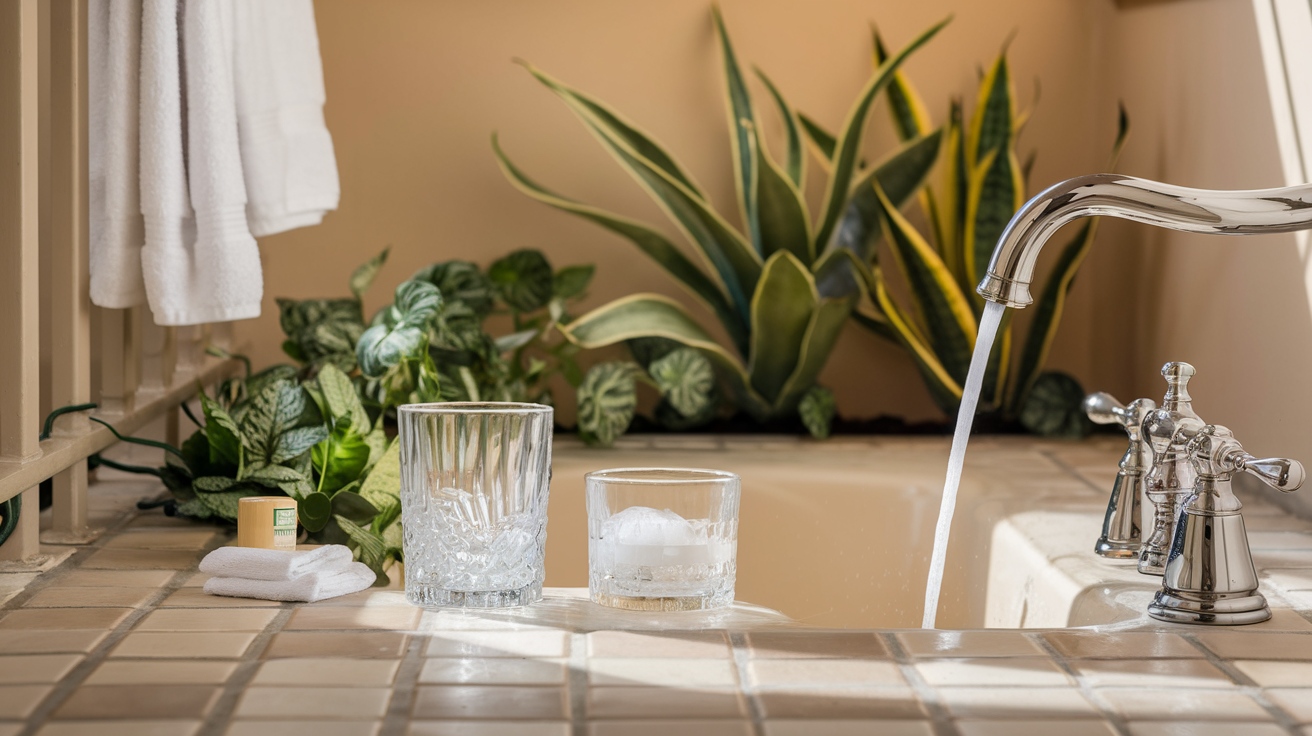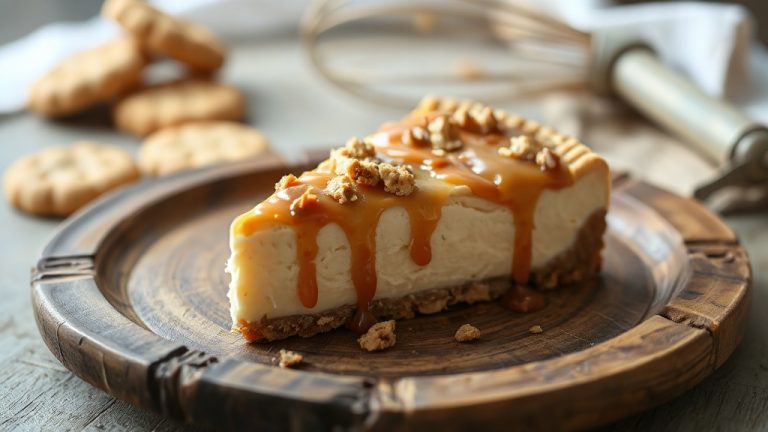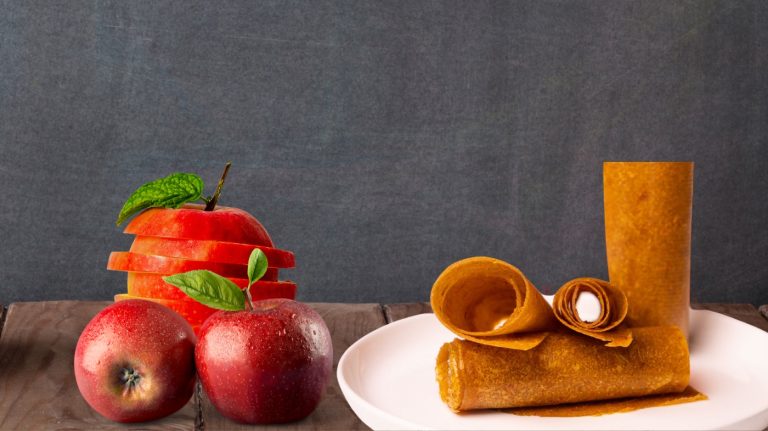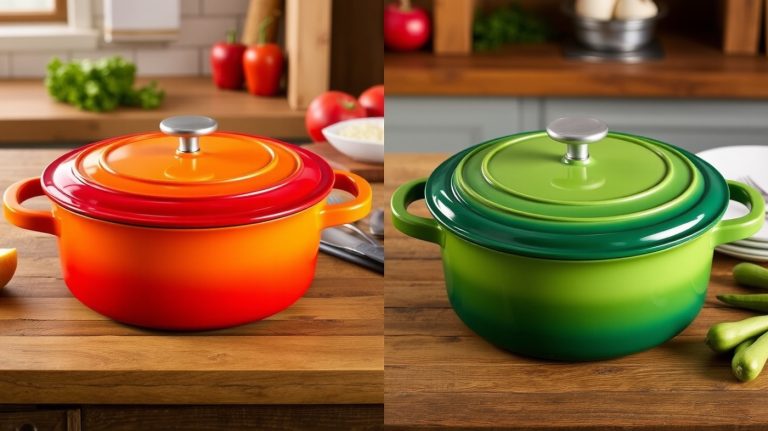How to Soften Hard Water? Simple Solutions for Everyday Use
You can soften hard water using several effective methods. Traditional ion exchange systems replace calcium and magnesium ions with sodium or potassium, substantially reducing hardness.
Reverse osmosis filters can also eliminate impurities, giving you softened water. For a more portable option, consider water softener pillows.
Natural methods like using apple cider vinegar or baking soda can help manage hardness in smaller applications. Installing a whole-house water softener provides thorough treatment.
Each method has distinct advantages, so you can choose based on your needs. Explore the various solutions available to find the best approach for your situation.
Key Takeaways
- Install an ion exchange water softener to effectively remove calcium and magnesium ions from your water supply.
- Utilize reverse osmosis systems to filter impurities and achieve softer water for drinking and cooking.
- Consider natural additives like apple cider vinegar or baking soda to reduce hardness and improve water quality.
- Use showerhead filters to minimize mineral buildup and enhance skin and hair hydration during bathing.
- Regularly maintain plumbing fixtures and appliances to prevent limescale buildup and prolong their lifespan.
Methods to Soften Hard Water
When tackling the issue of water hardness, several effective methods can help you achieve softer water.
One of the most common techniques is ion exchange, where a water softener uses resin beads charged with sodium or potassium ions.
These ions replace the calcium and magnesium ions in your water, effectively softening it. Additionally, it’s important to think about the safety of cleaning products, as using harsh chemicals can lead to residue issues similar to those seen with dishwasher detergents safety and hygiene concerns.
You might also take into account reverse osmosis (RO) systems, which remove impurities and provide soft water by filtering through a semi-permeable membrane.
Similarly, water softener pillows can offer a more portable solution for water softening, particularly in situations where space is limited.
Another effective method involves using a water filter. Various filtering systems, such as canister filters or HOB filters with filter medium bags, can help remove hardness by utilizing materials like Seachem Purigen or Turface.
For specific applications, such as cooking or personal care, boiling water or using a showerhead equipped with a built-in water filter can also serve as practical softening solutions.
Natural Techniques for Softening Water
For those looking to soften water without relying on mechanical systems or chemicals, natural techniques can provide effective alternatives. One popular method is using apple cider vinegar. This ingredient can help remove calcium buildup, making your water more manageable.
Additionally, it can improve the taste of your water, providing a pleasant experience when drinking or cooking. Using natural additives can be beneficial, as they work similarly to how dehydrator sheets promote healthier snacking by enhancing the overall quality of the process.
Some natural softening techniques you can try:
- Apple Cider Vinegar: Add a cup of apple cider vinegar to your bathwater for softer skin and hair.
- Baking Soda: Mix in a tablespoon of baking soda to your laundry to help soften clothes and reduce detergent usage.
- Lemon Juice: Use lemon juice in your rinse cycle to enhance the water’s softness and add a fresh scent.
Tips for Softening Water in the Kitchen
Hard water in your kitchen can lead to various challenges, from limescale buildup in appliances to less effective cooking.
To combat these issues, consider implementing several softening techniques. Boiling water is one effective method; it removes minerals like calcium and magnesium, making it ideal for cooking and washing vegetables while retaining their freshness and texture.
Additionally, using a quality caulk for kitchen sink maintenance can help prevent leaks that may worsen the impact of hard water on your cabinetry and appliances.
Use a water filter to soften and improve the taste of your drinking water. Many filters can also eliminate impurities and contaminants, enhancing the overall quality of water for both drinking and cooking.
If you’re looking for a quick fix, bottled water can serve as an alternative, although it may not be environmentally friendly or cost-effective long-term.
When using water-using appliances, run your dishwasher and washing machine on cooler settings. This practice helps prevent water stains and damage caused by hard water.
Additionally, incorporating conditioners can mitigate the adverse effects of mineral deposits on your clothes and dishes.
Water Solutions for the Bathroom
Many homeowners face persistent issues with hard water in their bathrooms, which can lead to unsightly mineral deposits and reduced efficiency of plumbing fixtures.
The effects of hard water can impact not just your fixtures, but also your skin and hair. To combat these issues and improve water quality, you’ll want to think about effective bathroom water solutions that help soften your water.
Regular maintenance of plumbing fixtures can also prevent buildup and improve overall functionality, much like heating milk properly guarantees a smooth texture and quality.
- Showerhead Filters: Installing a filter attached to your showerhead can substantially reduce mineral content, helping to soften your water and prevent buildup.
- Water Softening Systems: Think about investing in a whole-house water softener. This system treats water at the source, guarantees that all outlets in your home benefit from improved quality.
- Moisturizing Bath Products: Using bath products designed to counteract the effects of hard water can help protect your skin from drying, leaving it feeling softer and more hydrated.
Frequently Asked Questions
How to Make Hard Water Soft Naturally?
To make hard water soft naturally, consider boiling it, using ion-exchange filters, or adding apple cider vinegar. Additionally, natural water conditioners like peat moss can effectively reduce mineral content, improving water quality for daily use.
How Do You Make Hard Water Soft Again?
To make hard water soft again, you’ll need to employ advanced methods. Consider boiling it, using ion-exchange filters, or adding natural agents like vinegar to effectively remove those stubborn, pesky minerals that wreak havoc.
What Is the Most Common Way to Soften Hard Water?
The most common way to soften hard water involves using ion exchange systems. These systems replace calcium and magnesium ions with sodium ions, effectively reducing hardness and improving the water’s quality for household and industrial uses.
How Do You Bring Water Hardness Down?
To tackle tough water hardness, you’ll typically install a water softener, utilize reverse osmosis systems, or incorporate chemical conditioners. Each method effectively eliminates unwanted minerals, ensuring your water’s quality substantially improves for daily use.
Soften the Water and Reap the Rewards
So, if you’re content with your hard water turning your hair into a straw and your appliances into relics of the past, carry on!
But if you want to experience the luxurious embrace of soft water – free from the tyranny of scale and soap scum – it’s time to take action.
Embrace the methods outlined, or remain a loyal subject of hard water’s reign. After all, who wouldn’t want to trade in their bathroom for a spa?







